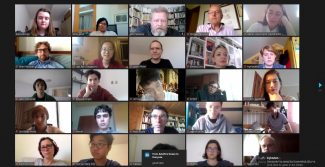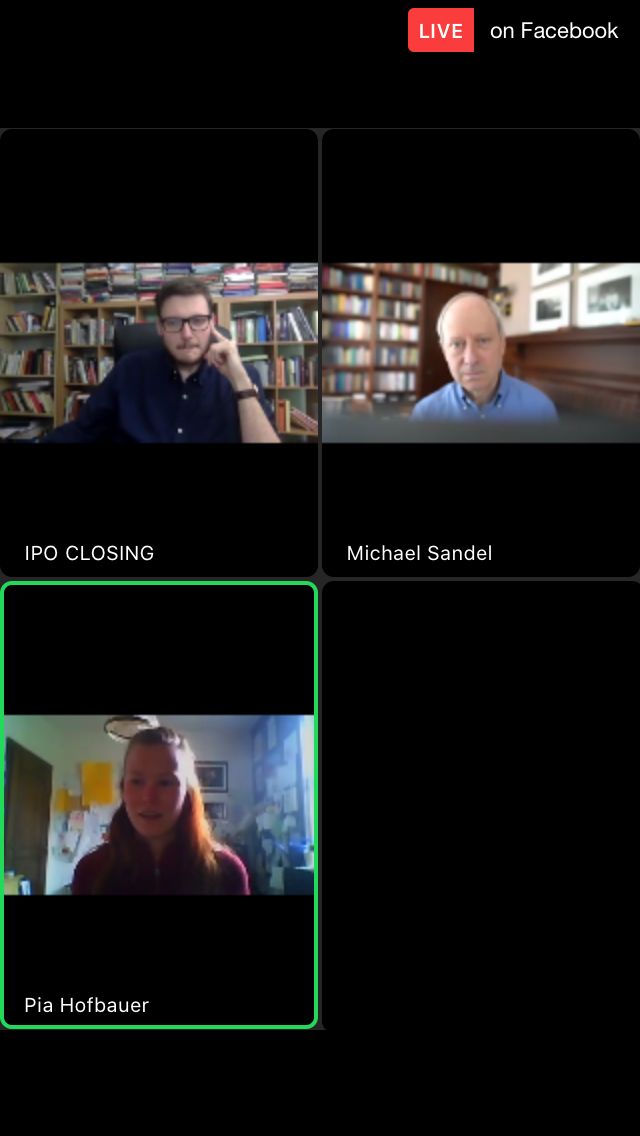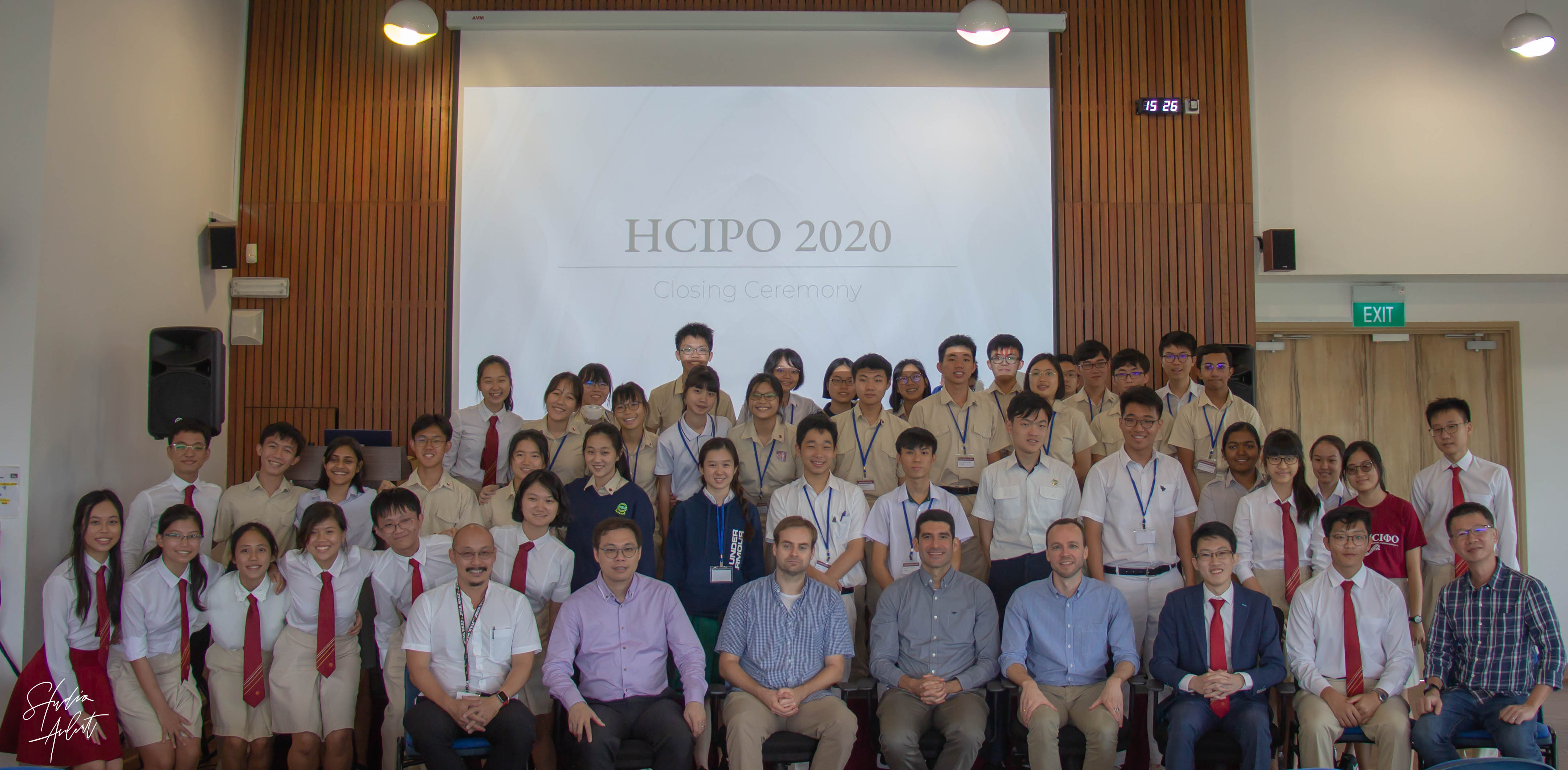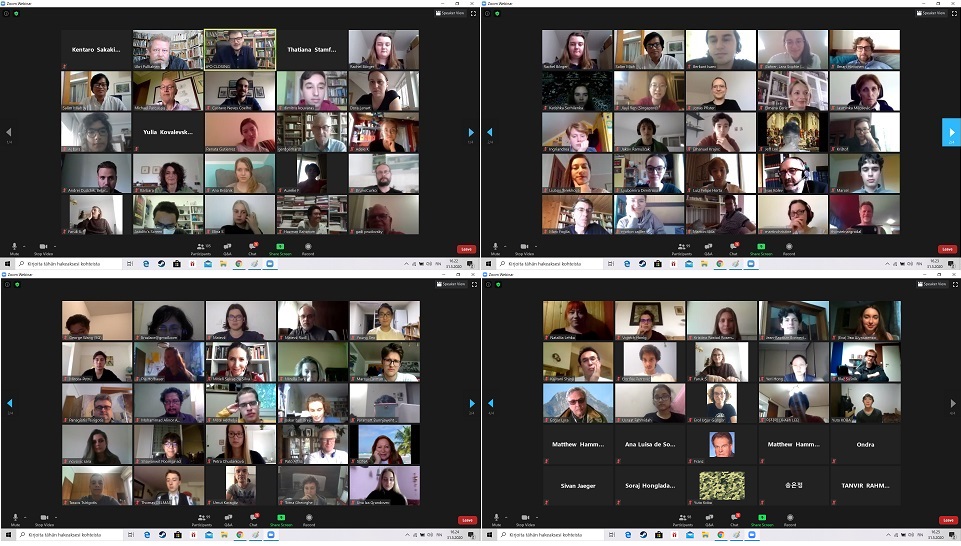
For the first time ever, Singapore sent a full team of two students to the 28th edition of the International Philosophy Olympiad (IPO) which was held in May this year. This was made possible because of efforts by SMU’s School of Social Sciences (SOSS), and Assistant Professor Matthew Hammerton, from SOSS, who played a key role behind the scenes in coordinating Singapore’s participation.
It was also a huge win for Singapore, where two Junior College students – George Wang Dingzheng (Junior College Year 1, Raffles Institution) and Ren Jiayi (Junior College Year 2, Hwa Chong Institution), scored a gold and silver medal win respectively.
The IPO was originally supposed to be held in Lisbon, Portugal. However, due to COVID-19 it had to be cancelled. The International Committee of the IPO then voted to hold an online version of the event (eIPO), hosted by Slovenia. Based on the theme “Global Solidarity’’, the event ran from 28 to 31 May and included a philosophy essay writing competition, and several symposiums, workshops, and keynote talks. A total of 64 students from 28 countries participated in the competition, with many more from a total of 40 countries joining in the other activities.

So how did Singapore get started and participate in this international challenge?
The IPO sometimes invites students from countries that have no delegation leader, no proper selection process, and no previous participation record in the IPO to participate in the event in the hope that this will nudge those countries to set up a proper participation process for future IPOs. In 2018, a student from Hwa Chong Institution was able to participate in the IPO by this route. The student, with help from his philosophy teacher and classmates, then organised the first philosophy Olympiad in Singapore (HCIPO).
Commenting on how it all began, Assistant Professor Matthew Hammerton said, “I was one of the judges at the 2018 HCIPO. I had also recently joined the Australasian Association of Philosophy’s “committee for philosophy in the community” as the Singapore representative on that committee. Several of the students who participated in the HCIPO approached the judges asking us if we could help organise for Singapore to officially participate in the IPO. Given my committee role, I agreed to take the lead on this.”
With the support of SOSS, Assistant Professor Hammerton was able to attend the 2019 IPO in Rome as a delegation leader and received recognition and advice from the International Committee of the IPO on setting up Singapore’s official participation. He then sought advice from Singapore’s Ministry of Education (MOE) and several Junior College teachers who taught philosophy. MOE had suggested that funding be provided to cover the travel costs of Singapore students selected to participate in the IPO in order to make it accessible to students from low-income families. SOSS had generously agreed to provide this funding and logistical support in organising the national selection process.
Thus at the 2020 HCIPO, it was announced to all the participating students that Singapore would be sending a team to the 2020 IPO and all were invited to participate in the selection process.

Unfortunately, the selection process that Assistant Professor Hammerton had initially planned had to be cancelled because of COVID-19. He said, “A few weeks before the eIPO, I found out that it was possible to send a team without having held a proper national selection process. I was then able to invite several interested students to send me a sample of their philosophical essay writing and choose two students from these candidates.” Despite the rush, Singapore finally sent an official team to participate in this year’s competition.
As a coach for the Singapore delegation, he wanted to have several meetings together with the team – going through strategy, preparation, helpful reading materials etc. But because of COVID-19, this was not possible and thus he communicated his advice and held discussions via emails instead.
As a delegation leader, he also served on the International Jury, participating in several Jury meetings and helping to evaluate essays in the first two rounds and decide which essays to send to the steering board for medal consideration.
The students had to complete their essay writing from 7pm to 11pm Singapore time. They were presented with four quotations from famous philosophers and asked to write an essay based on one of those quotations. To ensure the integrity of the online competition, several security features were used such as photo ID verification, live webcam connection to observe the students writing their essays, and software that tracked changes to their documents to ensure that no text was pasted in.
George Wang, who was awarded a gold medal, based his essay on a quotation by the 17th century Islamic philosopher Mulla Sadrā, and looked at whether philosophy can bring us to know the true essences of things. Ren Jiayi, who was awarded a silver medal, based her essay on a quotation by the contemporary American philosopher Sally Haslanger, and looked at whether we should accept problematic social categories.
Despite the late hours put in due to time zone differences, the two did outstandingly well for a first-time team. Singapore was the only team at the 2020 IPO to win both a gold and silver medal; out of the total of two gold medals, four silver medals, and eight bronze medals awarded.
Assistant Professor Hammerton attributes the team’s success to the world-class school system in Singapore and the availability of a special philosophy course, “Knowledge and Inquiry”, for students who are doing their A-levels. He notes that Singaporean students have a reputation for excelling in STEM subjects and have previous done well at the various maths and science Olympiads. This recent result demonstrates that they can also do well in the humanities.
On his thoughts about the Olympiad, Assistant Professor Hammerton said, “It was inspiring to see students and teachers from all over the world come together during a pandemic in a spirit of global solidarity. The youthful enthusiasm of the students, who did not want to let this difficult situation defeat them, was particularly encouraging.”
He also added that the professionalism and tech-savviness of the Slovenian organisers was very impressive, reflecting their experience in successfully running national philosophy Olympiads online for many years. He believes that with the right attitude, careful planning, and excellent technical support, many events of this kind can be successfully adapted to an online setting when necessary.
Lastly, for anyone curious about what philosophy has to offer, Assistant Professor Hammerton says “Philosophy examines the most fundamental questions about who we are, what we know, what there is, and how we should live. To think through such questions in a rigorous way one must learn how to think abstractly, read critically, analyse arguments, discern hidden assumptions, and reason logically. In the 21st century, as the knowledge economy grows in importance, and many traditional jobs are on track to be automated, mastering the higher-order thinking skills that philosophy fosters is one of the best ways for young people to equip themselves for the future. I hope this success in the International Philosophy Olympiad encourages more students in Singapore to try out a philosophy class sometime.”
